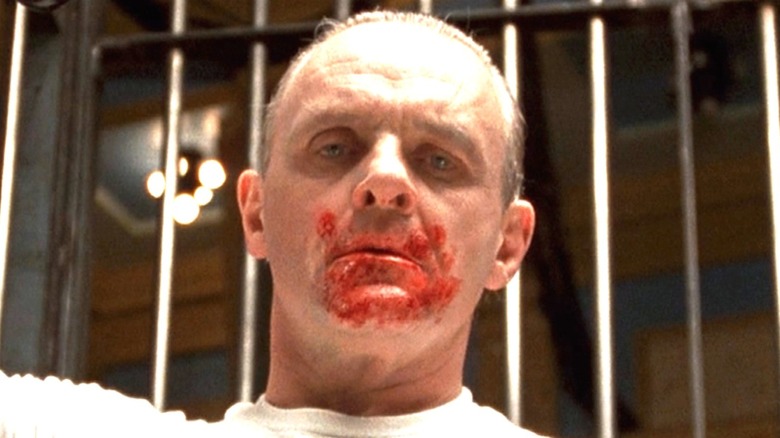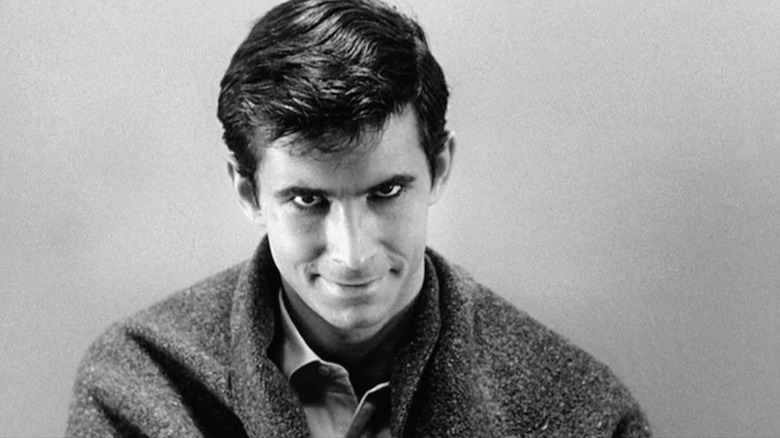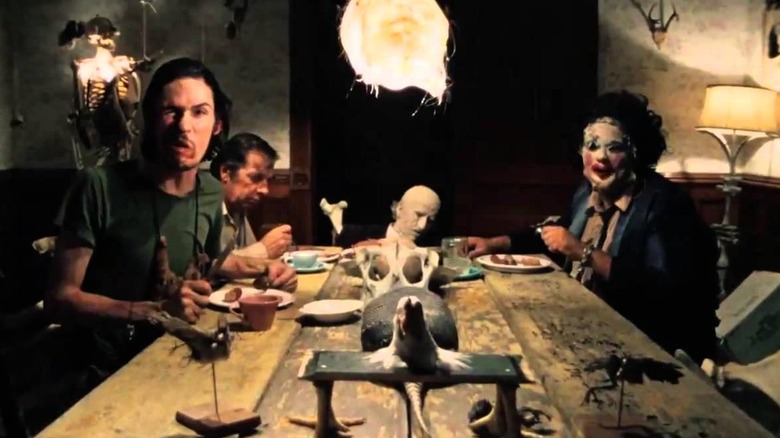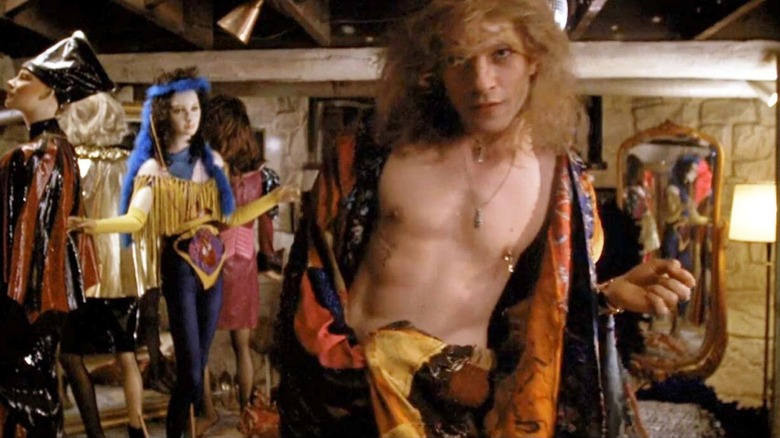The Three Iconic Horror Films Inspired By Serial Killer Ed Gein
True crime has always inspired the horror genre, though the bridging of real-life and fiction isn't always well-received. Serial killers, in particular, are a terrifying source of inspiration for on-screen villains.
While the Milwaukee Cannibal has recently inspired a plethora of horror films, Ed Gein's impact on the genre is just as prevalent. The infamous Midwesterner killed two people, and lived in a farmhouse filled with DIY trophies forged from the human remains he collected during his grave robbing escapades. From bone kitchenware to skin lampshades, it was one of the most grotesque displays of a disregard for human life ever recorded. Naturally, his violent crimes lent plenty of sick ideas to the horror genre. With a staunchly religious upbringing, an emotionally intense mother, and a mysterious death in the family, Gein's story was rife with frightening details seemingly crafted just for a horror film.
So, which iconic horror films did the so-called Plainfield Ghoul inspire?
Norman Bates' mommy issues
Directed by Alfred Hitchcock, the 1960 psychological horror film "Psycho" paved the way for violent and immoral behavior being depicted on-screen. The early entry to the slasher genre was based on a 1959 novel by Robert Bloch, which was loosely inspired by Gein's crimes. The author grew up near where Gein lived and drew from the killer's relationship with his domineering mother, which was deeply unhealthy (via Dr. Nicola Davies of Health Psychology Consultancy). Augusta Gein was a fiercely religious woman who instilled fear into her children, isolating them from the outside world. Ed acted as her caretaker when her health declined, and he was devastated by her death. So devastated that he created a suit made of women's skin to wear so he could embody his mother.
Norman Bates (Anthony Perkins), the protagonist of "Psycho," is another disturbed mama's boy who is consumed by an alter ego of "Mother." The film follows Bates as he runs the family motel and becomes increasingly erratic. It's revealed that he actually murdered his mother, Norma — and her lover — in a fit of jealousy, but couldn't go on without her, so he stole and preserved her corpse, crossdressing and carrying on as though she were still alive.
The classic horror film spawned three sequels, a remake, a spin-off, and a popular TV show that acts as a prequel to the original film's events.
Living in a house of horror
Directed by Tobe Hooper, "The Texas Chainsaw Massacre" was inspired less by Gein's relationship with his mother, and more by his disturbing home decor and handcrafted flesh apparel. The 1974 slasher follows a family of cannibals as they torment a group of travelers in the blistering Texas heat. Leatherface (Gunnar Hansen), now one of the most iconic horror villains, dons a mask made of human skin. His weapon of choice and methods of killing may be more extreme than that of his inspiration, but his perverse fascination with women mirrors the messages Gein's mother taught him.
Needless to say, the film's marketing as being based on a "true story" was fairly exaggerated. However, while Gein was a major influence, screenwriter Kim Henkel said that they were also inspired by other true crime cases, like Elmer Wayne Henley's role in the Houston Mass Murders (via Yahoo).
On the surface, "The Texas Chainsaw Massacre" is about a brutal killer and his deranged family wreaking havoc on anyone who stumbles through town. However, Hooper explained that the film is also a metaphor for the meat industry and the inhumane treatment of animals, according to Slate. "I gave up meat while making that film," Hooper said. "In a way I thought the heart of the film was about meat; it's about the chain of life and killing sentient beings, and it has cannibalism in it, although you have to come to that conclusion by yourself because it's only implied."
Hold the fava beans
It's often stated that Ed Gein was allegedly a cannibal (via the Los Angeles Times), and while that may have been so, it has never been fully confirmed. One of the most prevalent cannibalistic movie villains is Dr. Hannibal Lecter (Anthony Hopkins) from "The Silence of the Lambs." Directed by Jonathan Demme, the 1991 psychological horror film was based on the 1988 novel by Thomas Harris. The film was the first in the franchise and is considered one of the greatest horror films of all time.
The character more obviously inspired by Gein, though, is the movie's other serial killer: the cross-dressing Buffalo Bill (Ted Levine), who is depicted as being obsessed with turning women's skin into flesh outfits, much like Gein did in real life. Perhaps no character has made the act of applying lotion so horrific.
In the years since "Silence of the Lambs" was release, Buffalo Bill has been a source of controversy, as explained by Vox, since he can read as a damaging portrayal of a transgender person. While the character's cultural legacy is complex, it is clearly documented that the interpretation of Buffalo Bill as transgender was not intended by the filmmakers, as the film itself tries to make clear through dialogue, and Demme has consistently apologized for this misinterpretation. Though the character has direct ties to Gein, he was also inspired by other serial killers like Gary Heidnik (via Oxygen).



